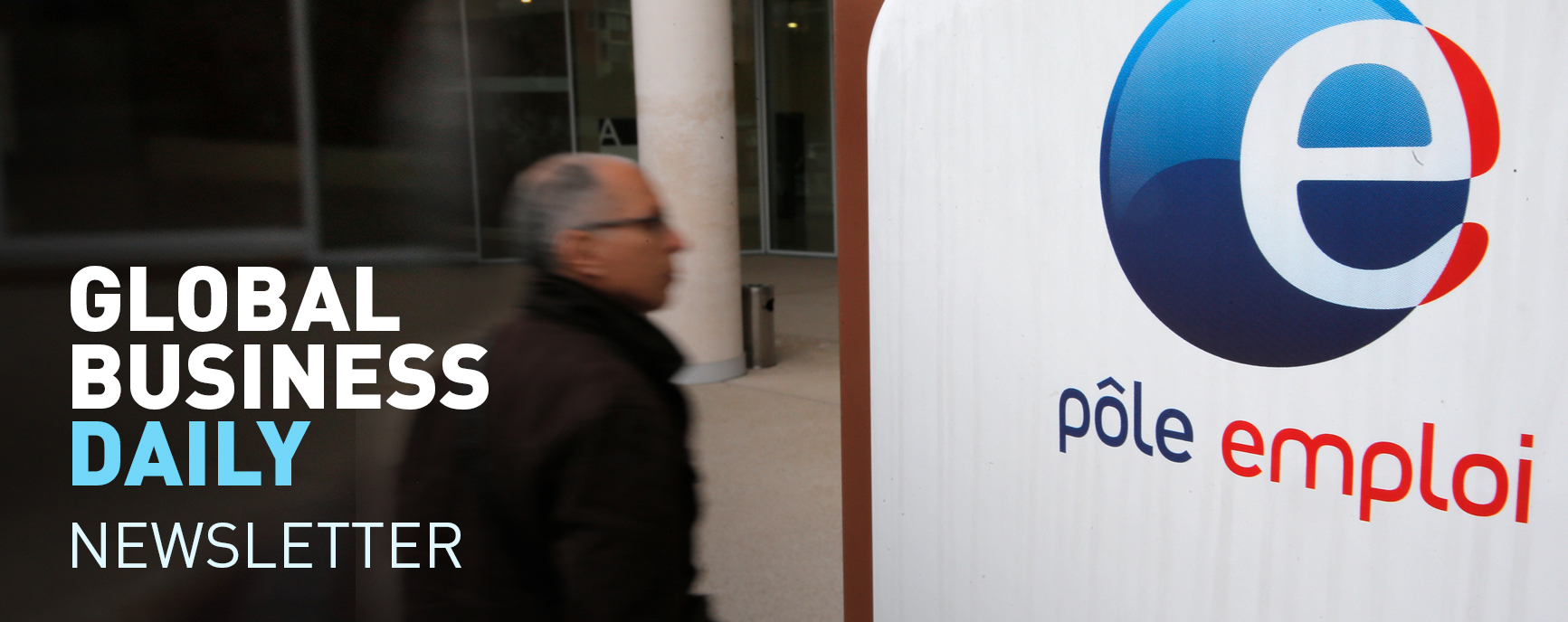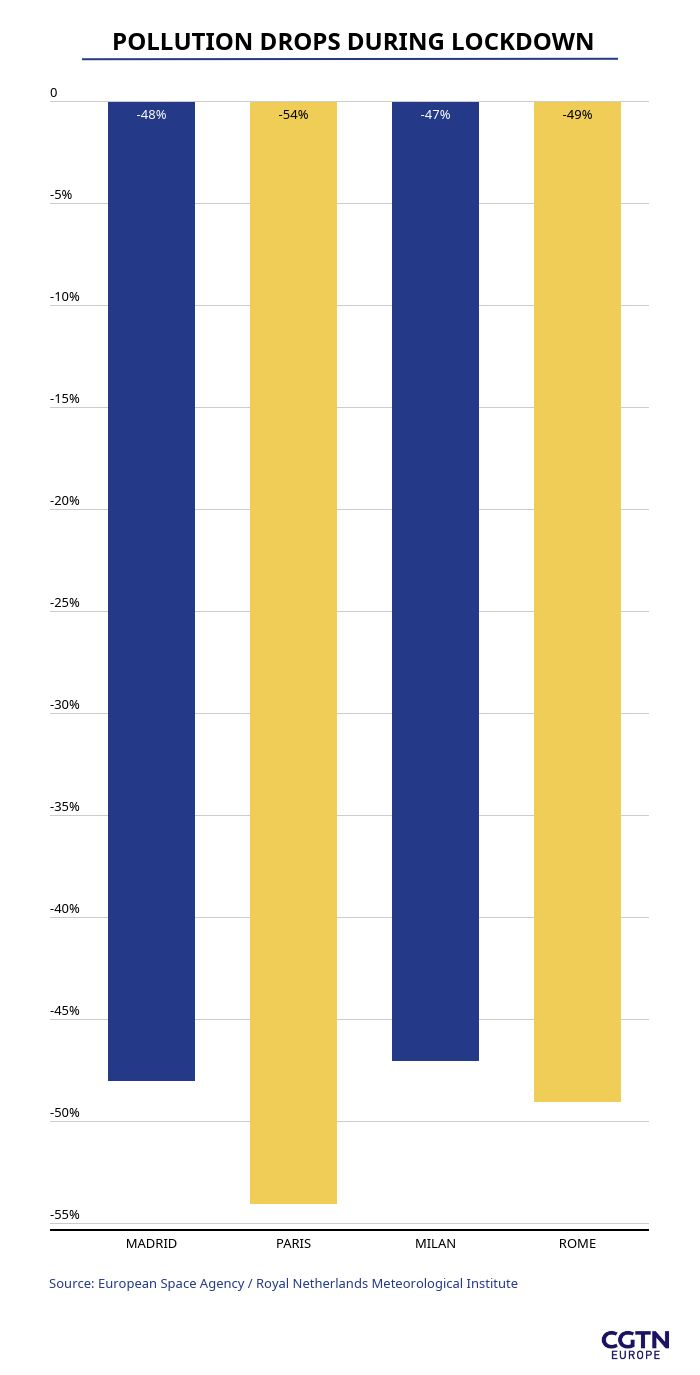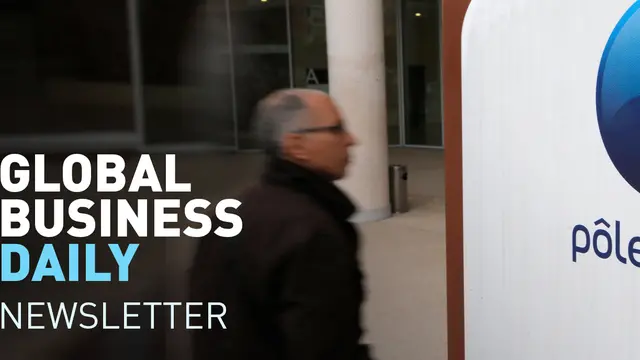"The real problem of the global supply-demand imbalance has started to really manifest itself in prices."
Bjornar Tonhaugen, an analyst with Rystad Energy, told CGTN Europe why the West Texas Oil price – a crucial barometer of the international crude market – dropped today to its lowest price since 1998.
While we're on the bleak news, McKinsey has released a report saying that as many as 60 million workers across Europe could lose their jobs to the COVID-19 lockdown and recession. Meanwhile, Paul Kagame, the Rwandan leader, has said African nations will need $100 billion this year to aid their recovery and it could take "a generation" to return to pre-coronavirus levels.
On the other side of the Atlantic, the U.S. has postponed the date by which the country's companies must pay what they owe in terms of duties and tariffs.
Meanwhile, Chinese retailer and tech firm Alibaba has announced a huge investment in cloud computing of at least $28 billion.
Happy reading,
Patrick Atack
Digital business correspondent
P.S. Did you know we send this briefing by email, too?
You can sign up to receive it here.

The benchmark U.S. oil price has dropped to its lowest in at least 20 years and has dipped below $11 a barrel amid fears the market is now flooded with crude due to the huge drop off in demand during the almost worldwide lockdown.
Chinese e-commerce giant Alibaba has pledged to spend $28 billion on cloud computing over the next three years. The money will be spent on internet infrastructures such as semiconductors and data centers.
Consulting firm McKinsey has released a report warning of as many as 60 million job losses across Europe due to COVID-19. If the virus is not contained within three months, unemployment is likely to rise to 11 percent across the continent, without recovery until 2024.
The UK government has unveiled two schemes to help start-up firms in the country during the pandemic. Companies seen as "high-growth" could benefit from a$623 million "co-investment fund" from the government, while smaller firms will be able to apply for loans and grants.
The U.S. government has delayed the deadline for the country's importing companies to pay duties and tariffs by 90 days, but the reprieve will not include the $360 billion of Chinese imports affected by President Trump's tariffs introduced last year.
The president of Rwanda, Paul Kagame, has warned economic recovery from the coronavirus lockdown could take "a generation or more" and called for international monetary support of $100 billion this year, and more in future years, to help African nations recover.
Japan will increase the size of its emergency coronavirus budget by $83 billion to accommodate Prime Minister Shinzo Abe's promise to pay each citizen $930 to help survive the crisis.
Australia's second-largest airline, Virgin Australia, is on the verge of collapse after its board held an emergency meeting and reportedly set up an administrator. Meanwhile, trade unions lobbied the government in Canberra to step in and save the firm.
Norwegian Air said 4,700 jobs are at risk after its Swedish and Danish subsidiaries filed for bankruptcy and the carrier canceled several other international agreements.
Spain's prime minister, Pedro Sanchez, is expected to suggest the EU create a $1.63 trillion recovery fund, financed by perpetual debt, to aid states suffering from the economic fallout of the pandemic.
While the Caribbean has not been hit as hard as other regions by the virus, the knock-on effect to its tourism industry is severe, with at least a 30 percent drop in arrivals – though the Caribbean Development Bank went further, predicting a 100 percent drop if travel restrictions remain in place until the end of the year.
According to a survey by price comparison website Confused.com, the average car insurance price in the UK has risen six percent in just the first quarter of 2020.
Skim social media and there is a deluge of tearful posts from what have become known as Corona Brides – those with long-held wedding plans now up in the air. Juliet Mann reports.
02:30

Steve Schifferes from City, University of London's department of International Politics spoke to CGTN Europe about the effect of the COVID-19 pandemic on those in society already suffering from high levels of inequality.
How is this virus changing the inequalities that already exist in our society?
What's happening is that the people who are at the moment suffering most inequality, which includes many black and ethnic minority groups and also people who are disadvantaged in other ways, are the main victims of the virus. That is to say, they are infected more frequently and they are hospitalized more frequently, and it appears they may be dying more frequently.
Now, there are many reasons for this, and the reasons probably for a large part, apply both to the BAME communities and other disadvantaged groups. They're more likely to live in overcrowded conditions, where it's difficult to self-isolate. They are more likely to have underlying health conditions, so they'll be more vulnerable to the infection and they're more likely to work in jobs where they won't be able to work at home, which means that they will again be more likely to be exposed to the virus. So for all these reasons, we're seeing a very distinctive difference between BAME people and those in deprived areas compared with the population as a whole.
So does race have an effect on how the pandemic is affecting people?
Black and ethnic minority people also are already discriminated against in society. So they have, you know, on average, not as good jobs, worse health outcomes and also lower income.
So, you know, what this is doing is shining a light on the inequalities that already exist in society, both racial and ethnic and related to poverty and low income. And we're seeing that playing itself out in this pandemic.
What impact do you think the government's economic response to the virus will or won't have?
Well, it's quite good that the government has begun a very large program to try to protect people's incomes and subsidizing their jobs if they're furloughed. But this is going to miss out on a large number of people and, again, that's going to be disproportionately those from BAME communities.
We know that the people who are going to lose their jobs rather than those who are furloughed are likely to be in sectors like hospitality, transport, and retail. And these are people who are predominantly female, young, low earners, and from those backgrounds. I mean, we've seen that in some of the workers in the NHS as well.
So I think that the government's program has big holes. It's missing out self-employed people, small businesses. It's missing out some of the people who are going to be laid off, not just furloughed. And a key group, which also includes a large number of BAME people, which is the self-employed people who are working on short-term contracts where they don't have any job security.
So all these people are going to have to rely on the very unsatisfactory system of universal credit, which the government has in place at the moment. And if you're on that, you're on £370 per month [$461], which is not very much for anyone to live on.
It's predicted we're going to enter a deep recession, what does this mean then for the most vulnerable in society?
Well, if we do have a deep recession, this could make things very much worse. And I think that's the big worry, because we're talking about the kind of recession that's more like the Great Depression of 1930s, a 100-year event. We're talking about unemployment going above 20 percent, perhaps a quarter of the population. The economy shrinking by perhaps 30 percent.
And this would have absolutely devastating consequences for poor people and vulnerable people, including BAME groups. You know, we're talking about people who would be long-term unemployed, would find it very difficult to get into the job market. We're talking about many businesses, including small businesses, going under and not recovering. And we're talking about more trillions of pounds that the government has to spend just to keep the economy going. And at some point, that money may have to be paid back. And, again, that burden may fall disproportionately on the poor and particularly the young, who will have a very large debt burden going forward for decades.
Analysis from the Copernicus satellite has shown a significant drop in nitrogen dioxide in these four European cities, since the lockdown in Europe began.

 简体中文
简体中文












